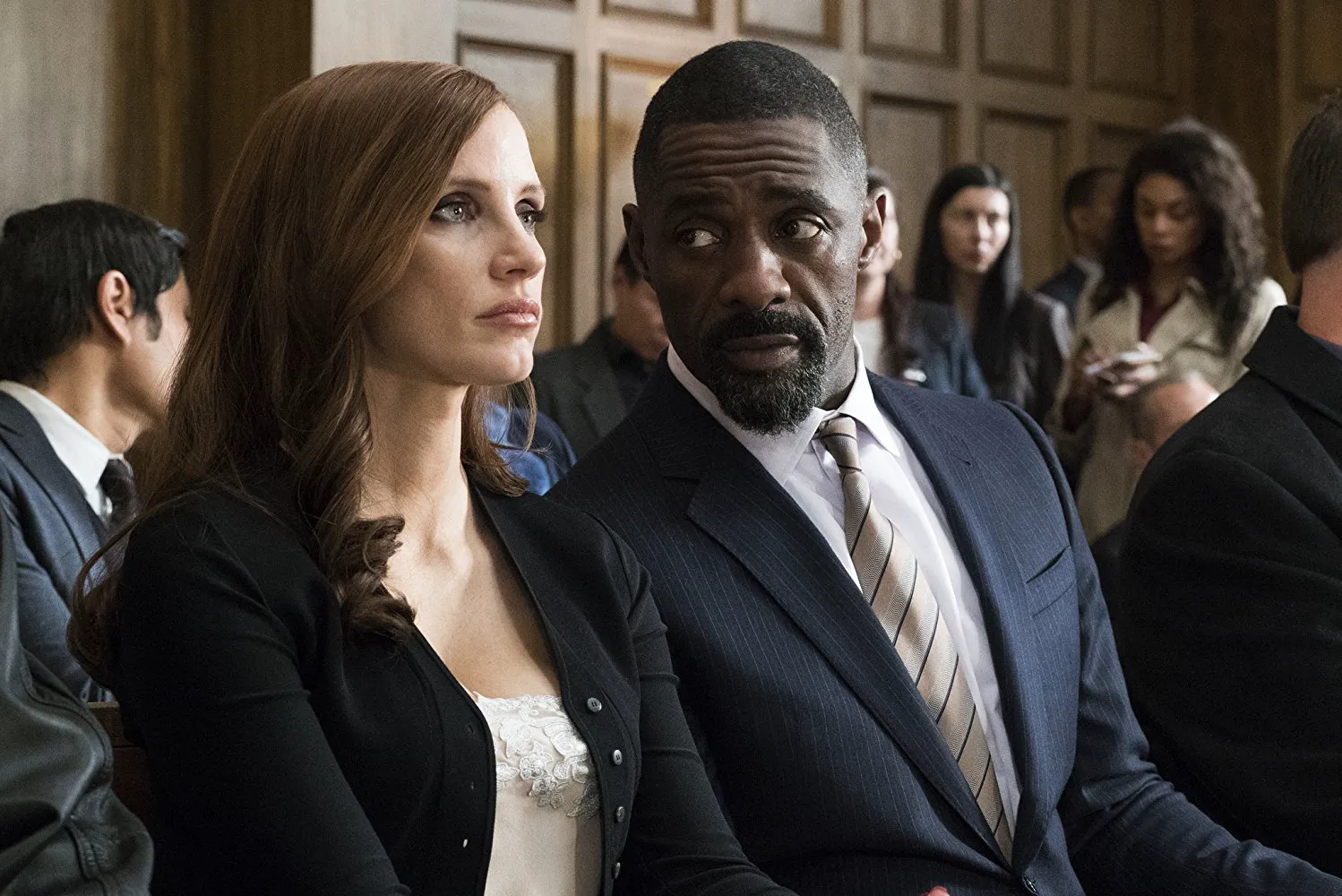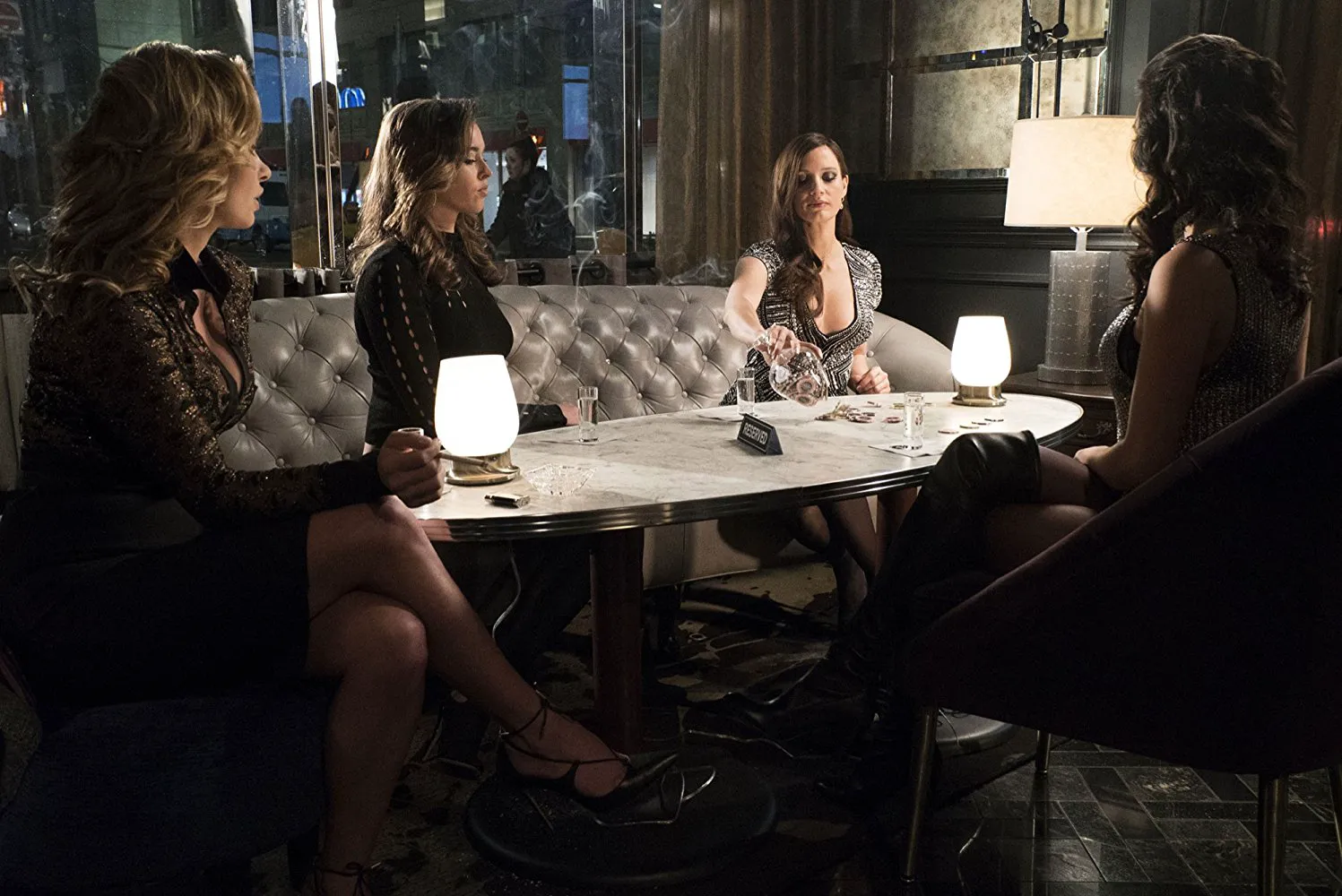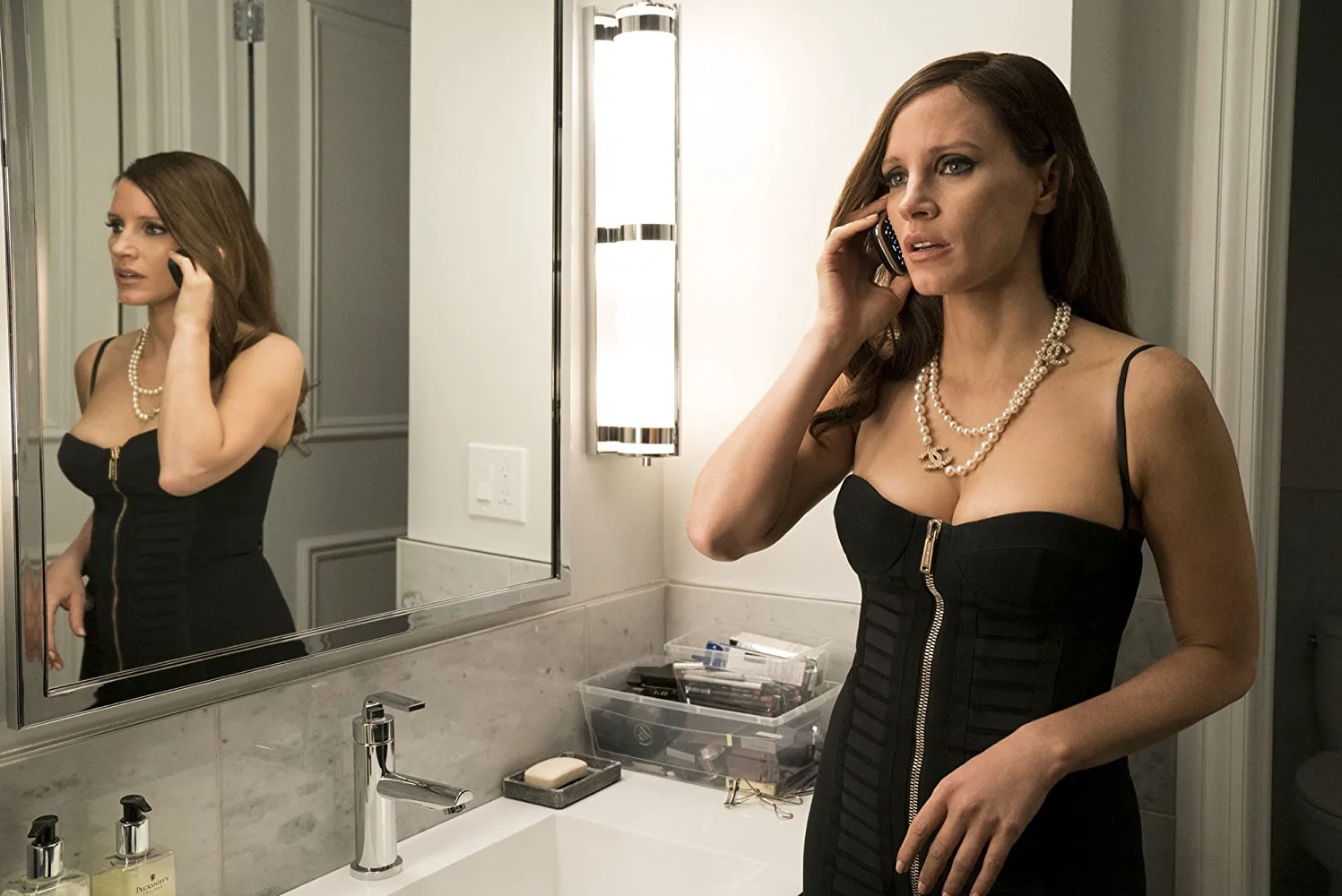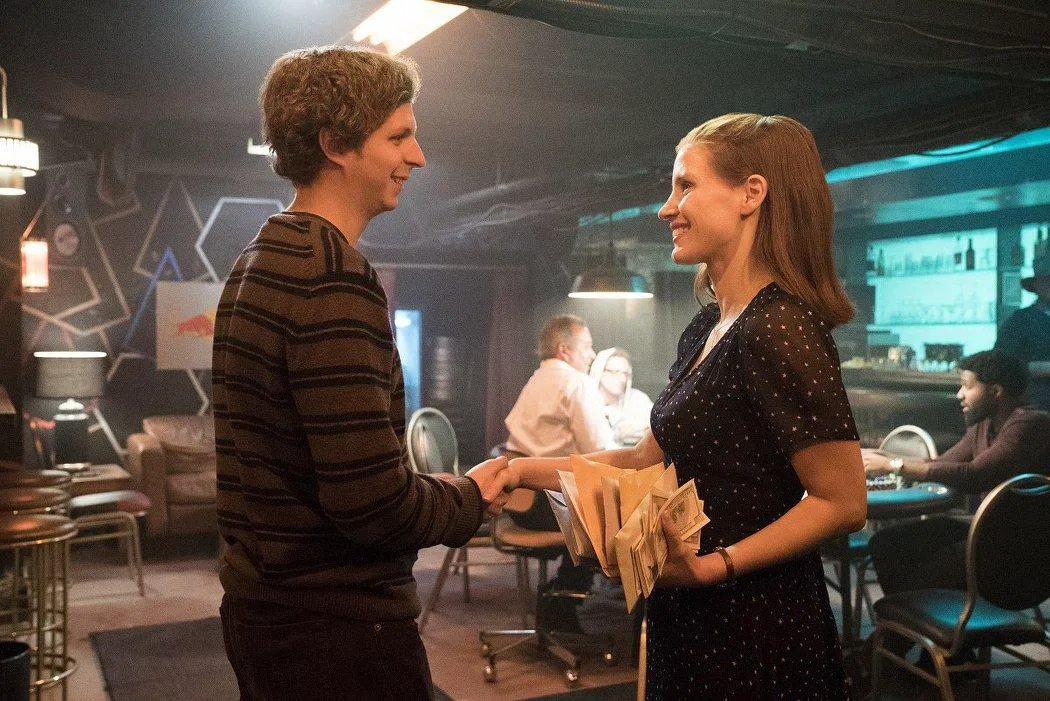Molly’s Game: A Glossy Biopic That Keeps Hollywood’s Secrets
After a setback in her skiing career, Molly Bloom (Jessica Chastain) moves to Los Angeles and becomes an assistant to a Hollywood mogul. Soon, she’s drawn into organizing exclusive poker games for celebrities from all over California. Mastering the business, Bloom takes over from her boss and runs her own poker casino in a hotel suite. Later, Molly moves to New York and caters to Wall Street financiers and other wealthy individuals on the East Coast. When Russian mobsters appear among her players, Bloom attracts the attention of the FBI, and she is arrested. To prove that she is only guilty of tax evasion and gambling law violations, she seeks help from lawyer Charlie Jaffey (Idris Elba), known for his strict moral principles and reluctance to work with dubious clients.

Imagine spending years providing discreet services to influential Hollywood figures, accumulating compromising information that could ruin careers. You break the law, face prosecution, and prosecutors offer you full pardon and the return of your seized assets in exchange for revealing that information. But you refuse to give up the secrets, go to trial, plead guilty, and receive a lenient sentence. How would Hollywood repay such samurai-like loyalty to its legends?

Sorkin’s Directorial Debut: A Celebration of Molly Bloom
You don’t have to guess. Just watch “Molly’s Game.” Esteemed screenwriter Aaron Sorkin made his directorial debut to celebrate Molly Bloom for her “heroism.” It is indeed a celebration, as the film explicitly states that Ms. Bloom is a feminist icon worthy of emulation by young girls (!). Yes, she bent the rules a little, but who in America is without sin? Besides, Molly cheated the government, not people, and she acted out of the best intentions. The film reiterates this several times to ensure viewers understand that they are witnessing a capitalist saint – a woman so pure in soul and body that she only uses drugs to keep the game going day and night for the convenience of her busy clients. And, of course, by the end of the film, Molly repents for everything even remotely reprehensible she has done.

It’s understandable why the Hollywood insiders who worked on the film portrayed Bloom with such affection. One good turn deserves another, and the debt owed to Molly is significant. She could have revealed a great deal about the world-famous individuals who frequented her establishment and behaved as famous men do when briefly freed from the control of agents, family, and the press. However, Bloom kept everything that could be kept secret (some things surfaced thanks to FBI informants). Ideally, her story would warrant an entire film series as long as “Harry Potter,” but Sorkin and Co. settled for a single feature film lasting two and a half hours, which is still quite a lot. The film “Steve Jobs,” also written by Sorkin, was shorter!

Beyond the Glamour: A Simple Story
What’s less clear is why Western critics, who aren’t invited to closed poker games, see “Molly’s Game” as more than a blatant payback to a “useful person.” Sorkin crammed the film with information about poker, game organization, Bloom’s skiing career, jurisprudence, and more. But if you drain all this water, interesting only to those who want to follow in Molly’s footsteps or write her biography, you’ll find that “Molly’s Game” tells a very simple and very banal story about a small-time entrepreneur who strived for success but failed because she ran afoul of the feds. Even the film itself rightly points out that Bloom is talked and written about only because she catered to celebrities. Molly herself is no more interesting than the average bar or billiard hall owner, except perhaps more attractive (the real Bloom is no less beautiful than Jessica Chastain, who plays her).

There’s also nothing unique about a woman in America building a business that is supposedly traditionally considered male. If anything, female entrepreneurs in the United States have been catering to male needs since at least the 19th century. True, back then, it was mostly about brothels. But they played cards in brothels, so Molly’s poker business has very deep roots. And perhaps a film about a brothel owner in late 19th-century San Francisco would be far more dramatic than “Molly’s Game,” where the drama only appears in the plot closer to the end of the narrative when Molly is harshly targeted by the mafia. However, this plot thread breaks off almost immediately after its debut, and the film becomes lulling again.

Monologues and Simplistic Psychology
As if mocking the laws of good cinema, Sorkin equipped his directorial debut with the main character’s incessant voice-over. Of course, there are dialogues in the film, but the monologue dominates – two and a half hours of self-justification, sometimes disguised as false modesty. This, however, is for the best. Because when Kevin Costner, who plays Molly’s father, enters the frame, such a ridiculous, simplistic psychoanalytic dialogue ensues (Bloom Sr. works as a psychologist) that Freud spins in his grave. Idris Elba’s character, on the other hand, is needed to listen to Molly’s rantings and admire the virtuous heroine after initial rejection.
In short, the only good things in “Molly’s Game” are the business organization tips, the notable actors, a few obvious jokes about the peculiarities of Russian-Jewish mobsters, and a few scenes in the middle of the film demonstrating the psychological subtleties of poker and the consequences of gambling addiction. It’s a useful film, but not high-class, not particularly exciting, and clearly not impartial towards the main character. For a positive review of an epic-length film, this is not enough.